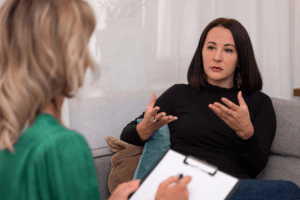Overcoming rejection is vital to your recovery.
Feeling rejected feels like tiring away at the kitchen over a meal, and not receiving the positive response you were looking for. You feel disappointed, let down, and wonder what you did wrong. You followed the recipe according to the book– what went wrong?
It is essential for us to feel needed and accepted. To know that people care about us the way we care about them. To feel that we belong to a group of people. Our hearts and minds yearn for connection, especially when we are looking to fill a void, such as love, a purpose, or companionship. Now, this connection can’t be made with just anyone or any group of people—it must be made with someone we also value and and believe to be valuable. Someone we believe can and will comfort us. Someone or something than we know will satisfy our yearning for the void in our lives.
When we are under the influence of addictive thinking (whether we are an addict or not), we have a core belief that we don’t matter and we are underserving. We might not even be aware of this core belief, because we are constantly looking for ways to fill this void. You may notice you shop when you feel alone, or you may drink a fifth of vodka after a bad fight with your boyfriend. You might not even realize you feel unwanted because you just get a craving for your drug after these situations.
The feeling of unwantedness may be so difficult to accept that our unconscious minds prevent us from ever actually feeling unwanted or unloved. We just engage in activities that make us feel loved or needed: drugs, sex, and alcohol in excess. Even when we become aware of our pattern of behavior, a simple gesture of not receiving love or acceptance can hit a sensitive nerve and cause depression or acting out behaviors (rage, passive aggressive behaviors, or self-harm behaviors).
So how do you stop this vicious cycle of using drugs or acting out to fill this void? Here are six strategies that will help you get started on overcoming rejection in more healthy ways:
- Connect to your Higher Power: realize you can’t control others’ actions and feelings. Connecting to your Higher Power helps us feel compassionate in life.
- Use some thought-restructuring techniques: are you focusing too much on the negative aspects of the situation? Is everything either good or bad? Can you see the gray area in this situation? Should you excel in everything—or do you want to excel in everything?
- Remind yourself of your mantra: “this too shall pass,” “no pain no gain,” or “practice makes perfect” are examples of mantras to help you move forward even when you feel like giving up. What’s your favorite mantra?
- Go to an AA/NA meeting—sometimes we lose perspective of where we are in life. I have found that clients who go to meetings in times of distress always hear something that resonated with them and realize they are not alone in the way they feel.
- Consider talking to a therapist: often times addictive thinking and the constant void of not feeling loved are signs of a deeper issue. Talking to a therapist may bring some clarity and help recover your self-esteem.
- Remember that everyone goes through phases of not feeling adequate, loved, smart enough, or strong enough. Life’s challenge is to seek different outlets that help us practice being “enough.” Considering donating your time to someone in need. Being present for others helps us stay humbled in our own lives.
Questions? Comments? I want to hear from you!




